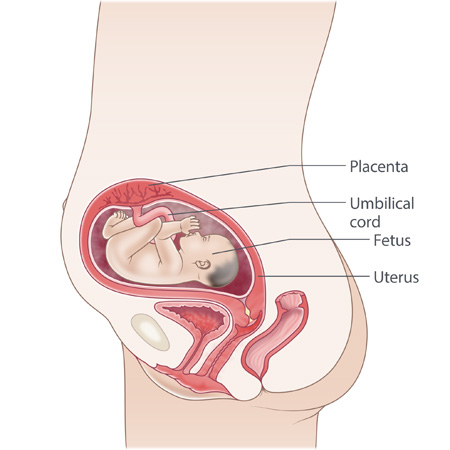You at 25 weeks pregnant
You might be feeling uncomfortable in the rib area, as your uterus expands upwards. You might have some indigestion around now.
If you haven’t already, consider booking into antenatal classes.
Antenatal classes are classes with detailed information to help you and your birth partner get ready for pregnancy, labour, birth, breastfeeding and early parenting. You can talk to an expert and meet other expectant parents.
Many hospitals offer specific classes, like active birth, hypnobirth or calm birth. You can also do classes in a community setting or at home. If you’re interested, ask your doctor or midwife for more information.

Preparing other children
If you have other children, it’s a good idea to prepare children for your new baby’s arrival. What you tell them might depend on the questions they ask, their age and how interested they seem.
If you’re planning to have other children at the birth, let your doctor or midwife know. You could also ask them for tips on how to help prepare children for the birth.
Preparing your home
You might already be making changes to your home for your baby’s arrival. Getting your home ready and collecting the things your baby will need can help you and your family feel ready for the birth.
It can be tempting to buy all kinds of stuff. But there are only a few things that your baby absolutely needs.
Your baby when you’re 25 weeks pregnant
Your baby:
- is about 22.5 cm long and weighs about 720 g
- is forming different parts of their spine
- might react to a loud noise or move to the sound of familiar music or voices.
Our Pregnancy for partners section has tips and information for your partner, if you have one. It covers essential topics like antenatal classes, relationships and feelings, wellbeing, birth support and early parenting.